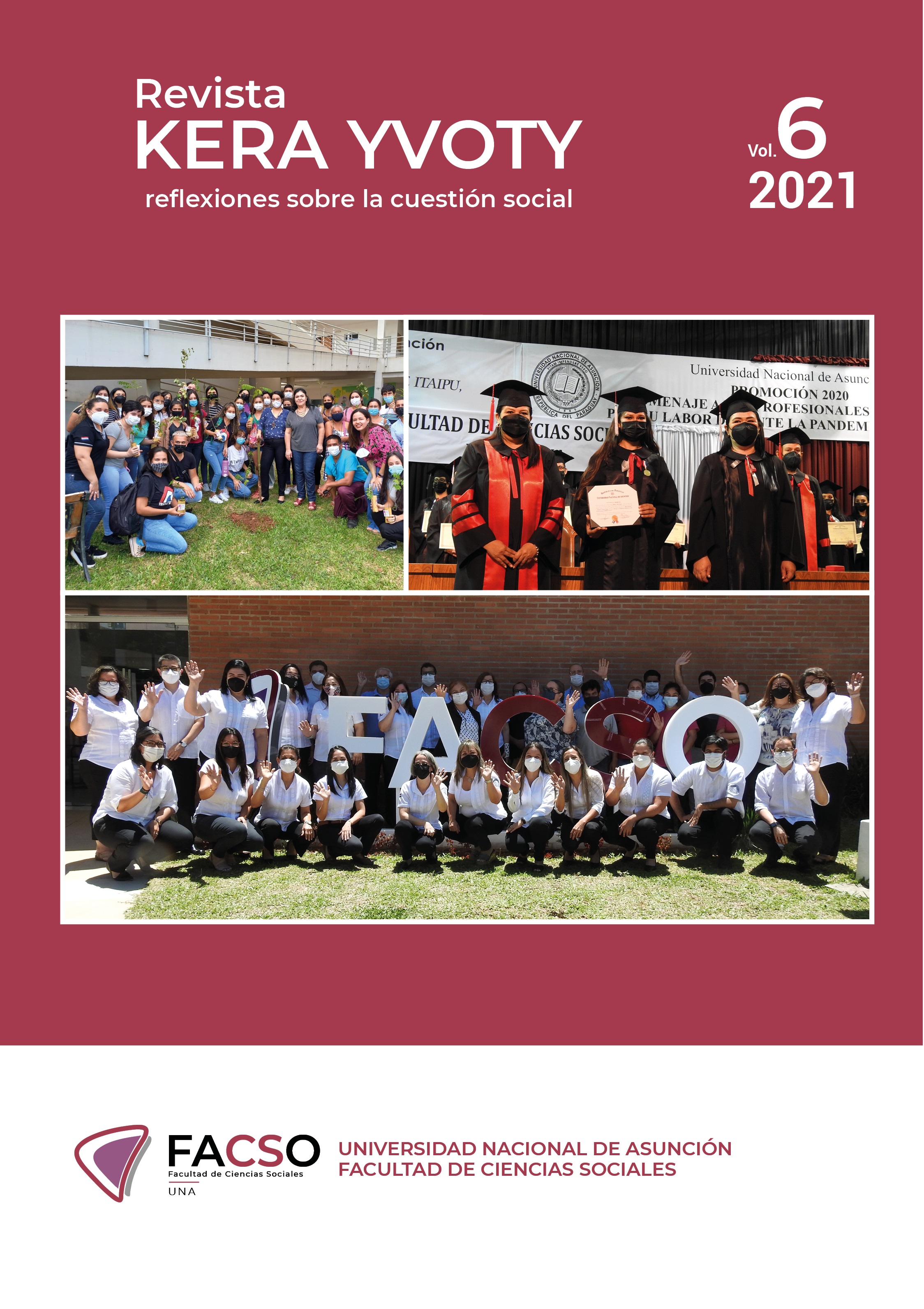Abstract
The work describes the opinion of the different levels that establish up the Faculty of Social Sciences of the UNA. This issue was addressed due to the need to formulate a baseline on the strengths, opportunities, weaknesses and potential needs of the academic community that constituent the faculty. The methodology used was the application of closed questionnaires throughout a digital survey format, with a Lickert scale to teachers, students, graduates and officers of the FACSO, the convenience sampling methodology was used for this purpose. The study involved 30 teachers, 87 students, 56 graduates and 27 officials. As results of the work, the answers of the participants of the different levels are homogeneous, showing a high acceptance in the actions and initiatives developed by the faculty, strengthening the joint management and showing the transforming intention of the estates in propping up and strengthening the efforts in around the institutionalization of FACSO.
References
Domínguez, R. (2014). Obras completas. Prosa. Servilibro.
García Riart, J. (1999). Las ideas impresas de una generación. Servilibro.
Kraemer Tebes, J., & Nghi D., T. (2018). Interdisciplinary. Team Science and the Public: Steps Towards a Participatory Team Science. American Psychologist, 549–562.
Martínez Carazo, P. C. (2006). El método de estudio de caso: estrategia metodológica de la investigación científica. Pensamiento & Gestión, 165-193.
Pavía Calderón, J. M. (2001). La incomunicación y otros textos del mpntón. Cooperación Universitaria Autónoma de Occidente.
Sabino, C. (1992). El proceso de investigación. Panapo.

This work is licensed under a Creative Commons Attribution 4.0 International License.
Copyright (c) 2021 Santiago Caballero, Sebastián Vargas Ferreira






